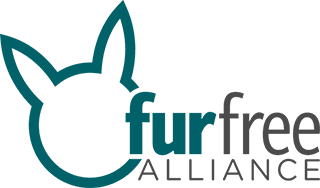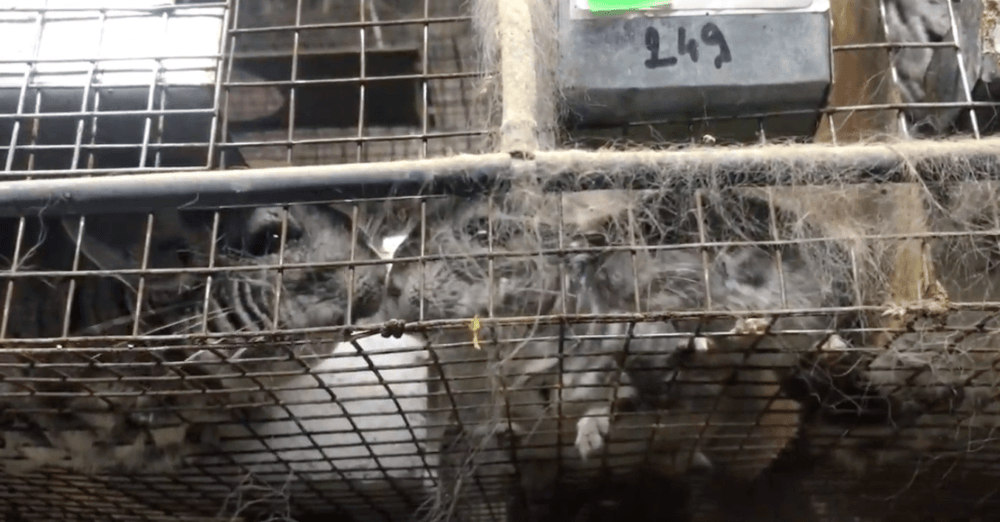
NGOs and MEPs gather at European Parliament to call for a fur-free Europe
STRASBOURG, 6 OCTOBER 2022 – Today, as the Fur Free Europe ECI reached more than 400,000 signatures in less than five months, MEPs from the Intergroup on the Welfare and Conservation of Animals gave their clear support to this call to end the fur trade in the EU. At an Intergroup meeting in Strasbourg dedicated to “The case for a Fur Free Europe”, scientific experts, MEPs, Member States and civil society argued why there should be an end to fur cruelty in Europe.
Launched in May 2022 and supported by 80 animal NGOs, the European Citizens’ Initiative (ECI) Fur Free Europe wants to make an end to the cruel, unnecessary and wasteful practice of fur farming and calls on the European Commission to ban the production and sale of fur in Europe.
Sandra Schoenmakers, Executive Board member of the Fur Free Alliance, said:
“Millions of animals suffer each year on fur factory farms in the EU. It is clear that industry welfare certification schemes do nothing to solve the serious welfare problems on fur farms. There simply is no humane way to keep active predators confined in fur cage farms. The only way forward is to ensure a permanent end to the fur trade in Europe.”
Following the introduction by the President of the Intergroup Tilly Metz MEP (LU, Greens/EFA), and a presentation of a new Fur Free Europe report by Eurogroup for Animals’ CEO Reineke Hameleers, scenes of the investigative documentary SLAY were screened. This documentary, from the makers of the award-winning films Cowspiracy and What The Health, exposes the dark reality of the production of fur skins. Filmmaker Rebecca Capelli shared her experience of witnessing greenwashing, mislabelling, and extreme animal abuse during her research:
“The suffering of animals in the fashion industry is greenwashed into oblivion while those skin industries are destroying the planet and harming people. SLAY aims to challenge the notion that animal skins are a fabric, and open people’s eyes to the dark realities behind some of the most sought after skins in fashion.”
Bo Algers, veterinarian and Professor emeritus at the Swedish University of Agricultural Sciences, shared scientific evidence on how the behavioural needs of mink and foxes in the fur industry are hindered, leading to stereotypical behaviour, an indication of poor welfare and understimulation. He noted that the industry’s WelFur scheme does not guarantee that individual animals do not suffer from poor welfare:
“The WelFur scheme is used to rank existing fur farms, it does not assess individual animal welfare (..) Levels of stereotypical behaviour are not measured by scientific method in the WelFur scheme context.”
Johannes Rauch, Austrian Federal Minister of Social Affairs, Health, Care and Consumer Protection, provided a video message:
“In my role as Minister of Health, I strongly push towards the realisation of the „One Health“ approach. That means we have to look at human health, animal health and environmental health as interlinked issues that strongly impact one another. I am convinced that we will have to fundamentally change this system of animal exploitation to avoid future pandemics. This is why I wholeheartedly support the European Citizens’ Initiative for a Fur Free Europe and I want to ask you to support it as well. The EU must use its power and also close the EU market to farmed fur products from outside the EU. Just like we have done with products from certain trapping methods, seal products or cat and dog fur. In order to make progress and live up to our moral standards and the responsible treatment of animals as sentient beings, I strongly urge all of you to support this common cause, support the Citizens‘ initiative and make this step possible towards the goal of a fur free Europe.”
The message echoed the information note tabled by Austria and the Netherlands during a meeting of the Council of the European Union (Agriculture and Fisheries), supported by Belgium, Germany Luxembourg and Slovakia, calling on the European Commission to investigate the possibility for a ban on fur farming. The call to end fur farming in the EU, on the grounds of animal welfare, public health and ethical considerations, was backed by a total of twelve Member States during the deliberations on this paper.
Call upon the European Commission to end animal suffering on European fur farms – sign the ‘Fur Free Europe’ European Citizen’s Initiative.





